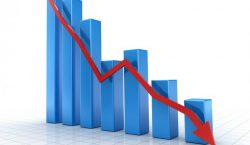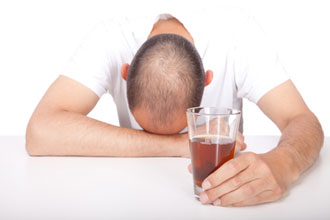


EVER woken up on a Sunday morning with the worst hangover ever? The headache was bad enough, but the nausea and lethargy made you feel as if you had been poisoned.
Yet, when you had done the same thing two months before, it hadn’t felt this bad, even though you had drunk the same amount of wine and avoided the usual culprits (the spirits, such as brandy and whisky, with their particularly toxic chemicals). What was worse, your friend, who drank even more than you, felt fine. The usual excuse is to blame the after-effects on bad luck, or your genes, but could there be other culprits?
Hangovers occur due to the side-effects of the chemical produced when alcohol is broken down. Alcohol itself is fairly harmless – but enzymes convert it to acetaldehyde, which does the damage. The longer the acetaldehyde hangs around, the worse you and your liver feel. Other enzymes help to clear the acetaldehyde away, but the rates at which both happen are extremely variable in different people.
Many east Asian people carry a mutation in a gene that increases the speed at which acetaldehyde is formed. This means that, compared with Caucasians, they suffer more side-effects from boozing, such as flushing and nausea. There are also more subtle gene variants that alter how much acetaldehyde an individual can produce and how fast they can eliminate it.
A study of more than 4,000 twins in Australia has shown that susceptibility to hangovers has a major genetic component. Other twins studies have shown that liking or disliking the taste of alcohol, the amount of drinking, and alcohol addiction are strongly heritable traits. So clearly the genes that control these enzymes are important – but they are not the whole story.
Last year, a US study explored for the first time what binge drinking did to our microbes. Twenty-five healthy volunteers who were not regular drinkers were given a wine glass of vodka. There was a wide variety in response: those with the worst symptoms and changes in blood tests had the highest levels of toxins coming from the cell walls of their gut microbes.
These toxins (called LPS) had somehow leaked out of their intestines, as a result of the inflammation the alcohol had produced. Within their guts the alcohol produced a brief, but large increase in the microbe species that were pro-inflammatory, stimulating the immune system as if it were under attack and contributing to the general sick-feeling so typical of hangovers.
Population studies, such as the American gut project, show that low to moderate alcohol intake can actually increase your microbial diversity, which is usually beneficial for your health. One of my own researchers (I’m a professor of genetic epidemiology at King’s College London) diligently experimented on her own microbes by drinking three pints of beer each evening for five days. Her 5,000 or so gut microbes overall did not change, but a few species increased markedly – one relatively unknown one called Erysipelotrichia increased five-fold. When she looked at its possible function from its genes, she found it could produce alcohol dehydrogenase – the enzyme that breaks down alcohol to acetaldehyde. So, as she was drinking her beer and feeling increasingly tired and lethargic, her alcohol-loving microbe species were busy reproducing.
So, drinking too much alcohol actually causes toxins to be released from our microbes, as well as growing more microbe-loving alcohol species. Studies have also shown that when mice are fed these toxins, they seek out more alcohol than normal mice, suggesting that the microbes, via their toxins, could actually be encouraging us to seek out even more alcohol and – worryingly – even lead to addiction.
If our microbes are part of the problem – what happens if we eliminate them? Experiments making mice binge-drink like humans produced signs of liver damage – again because of the toxins, leaky gut and inflammation. When the researchers repeated the experiment in mice lacking microbes, they found no evidence of liver damage. Going back to their normal binge-drinking mice, the scientists tried feeding them a high-fibre diet (enriched with pectin found in apples) as well as alcohol shots, and compared this to a low-fibre diet. The high-fibre-fed mice amazingly had virtually no obvious side-effects from the alcohol on their livers. Similar preventive effects were seen on mice given probiotics containing beneficial microbes such as lactobacillus, found in cheese and yoghurt. Even saturated fat counteracted the harmful effects of the alcohol on microbes.
Although the jury is still out on whether drinking small amounts regularly is beneficial, overdoing alcohol is obviously bad for you. It causes major disruption to your gut microbes directly – and heavy drinkers also tend to have poor diets. Liver damage is now on the increase, particularly in children and young women. As diverse a diet as possible is the best insurance to maximise your range of microbial species and therefore your immune defences.
Now when you wake up feeling unwell after a night out, you can blame your microbes as well as your pushy friends. But the microbes could also be part of the solution. If you are still keen on binge-drinking occasionally, at least start the evening with a slab of smelly cheese or a glass of high-fat natural yoghurt and let your microbes reduce some of the pain and suffering. Perhaps salt-and-microbe crisps could be the drinking partners of the future? – Guardian.co.uk